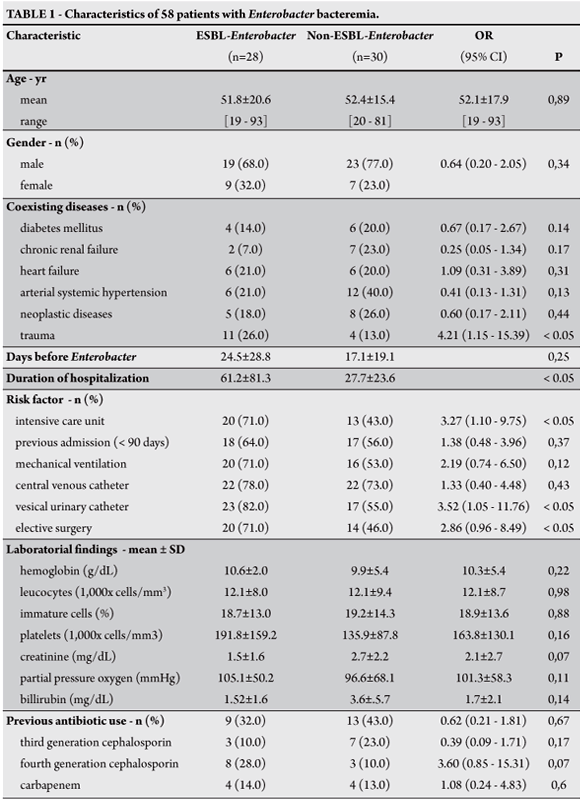INTRODUCTION: Enterobacter can be included in the group of extended spectrum β-lactamases (EBSL)-producing bacteria, though few studies exist evaluating risk factors associated with this microorganism. A retrospective cohort study was conducted to determine risk factors associated with ESBL-producing-Enterobacter and mortality METHODS: A retrospective cohort study with 58 bacteremia caused by ESBL-producing-Enterobacter (28 cases) and non-ESBL (30 cases) RESULTS: Risk factors associated with ESBL-Enterobacter were trauma, length of hospitalization, admission to the intensive care unit, urinary catheter and elective surgery (p< 0.05). The survival curves were similar for ESBL and non-ESBL CONCLUSIONS: ESBL-producing-Enterobacter bacteremia is prevalent and the survival curve was similar to non-ESBL-producing strains.
Extended spectrum β-lactamases; Enterobacter; Bacteremia


